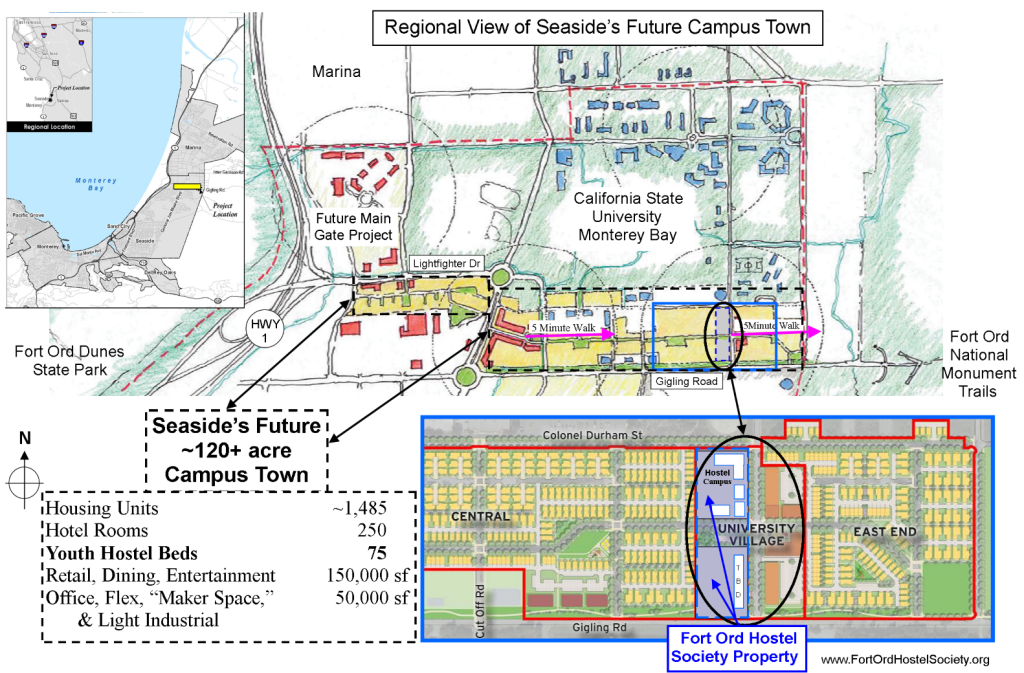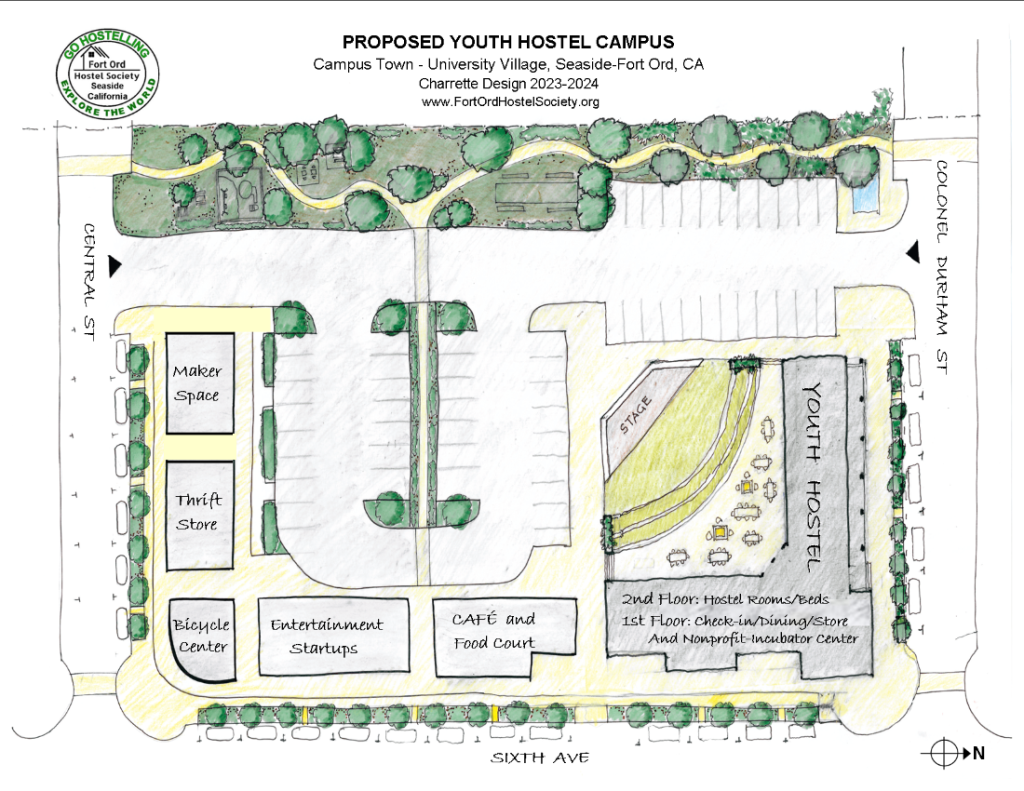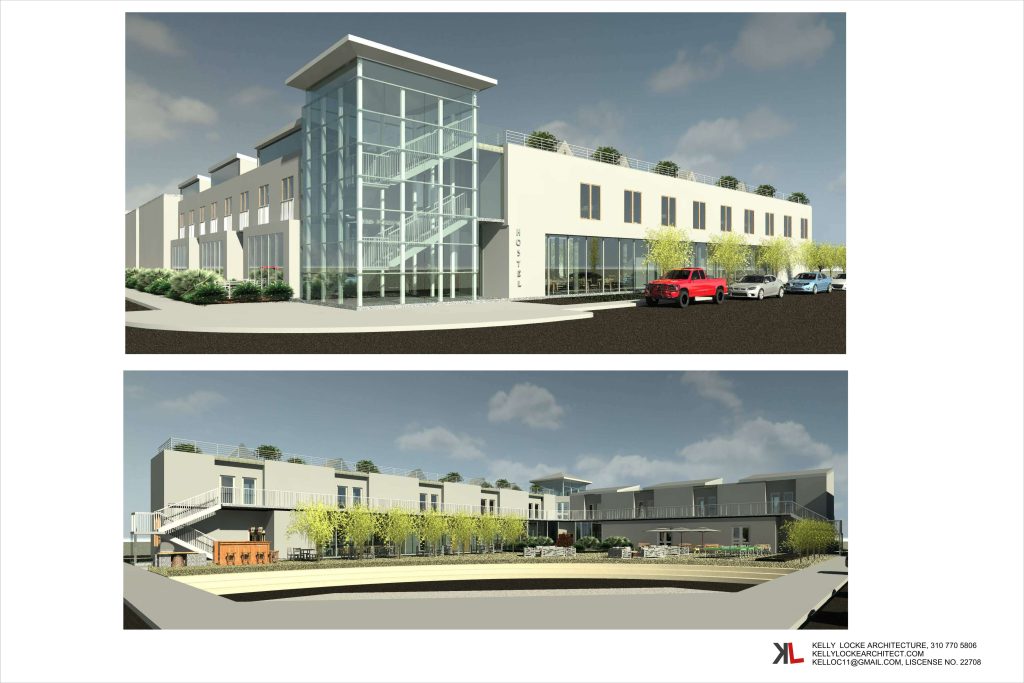In 1998 Central California Council of AYH (CCC/AYH) with support of American Youth Hostels (AYH, dba HI-USA) and California State Parks received approval from National Parks for the conveyance of 4.6 acres and 4 buildings located in the former Fort Ord to be developed into an Eco-Hostel.

However, CCC/AYH decided that developing a hostel in the city of Monterey took precedence over Fort Ord, so developing the Fort Ord hostel was put on hold for a a number of years. Then in 2008 after about 120+ acres of Fort Ord (including the hostel property) was transferred to the city of Seaside, CCC/AYH received a 30 year lease for the property renewable in perpetuity at $1 per year from the city of Seaside, but also required CCC/AYH to raise all the funds needed to design and build the hostel.
In 2017, HI-USA (AYH) reorganized and unified into one National organization, and as a consequence the CCC/AYH Council was disbanded. After that, HI-USA decided not to pursue a hostel at Fort Ord, but agreed to transfer their property lease to the Fort Ord Hostel Society (FOHS), a local Monterey Bay independent 501(c)(3) non-profit organization. This transfer included the benefit of the prior AYH investments (plans, CEQA, etc.) and some seed funding to FOHS.
Meanwhile, the city of Seaside came up with a plan for developing a new city in their 120+ acre portion of Fort Ord which they will call Campus Town that includes the property leased for a Hostel in an area of Campus Town designated as University Village and illustrated in the graphic below.

Through these transitions, FOHS along with a core group of local, hosteling enthusiasts has maintained continuous control of the property and made key improvements including connecting utilities, hazmat removal from the primary development site, as well as, enlisting a local group of AIA Architects who volunteered to develop revised concept plans of including the Hostel in Seaside’s future Campus Town-University Village as illustrated below.

FOHS is currently raising funds needed to convert this concept plan into construction drawings for a revised 75 Bed Eco-Hostel complex as shown in the draft illustration below which was created on a volunteer basis by local Architect Kelly Locke.
